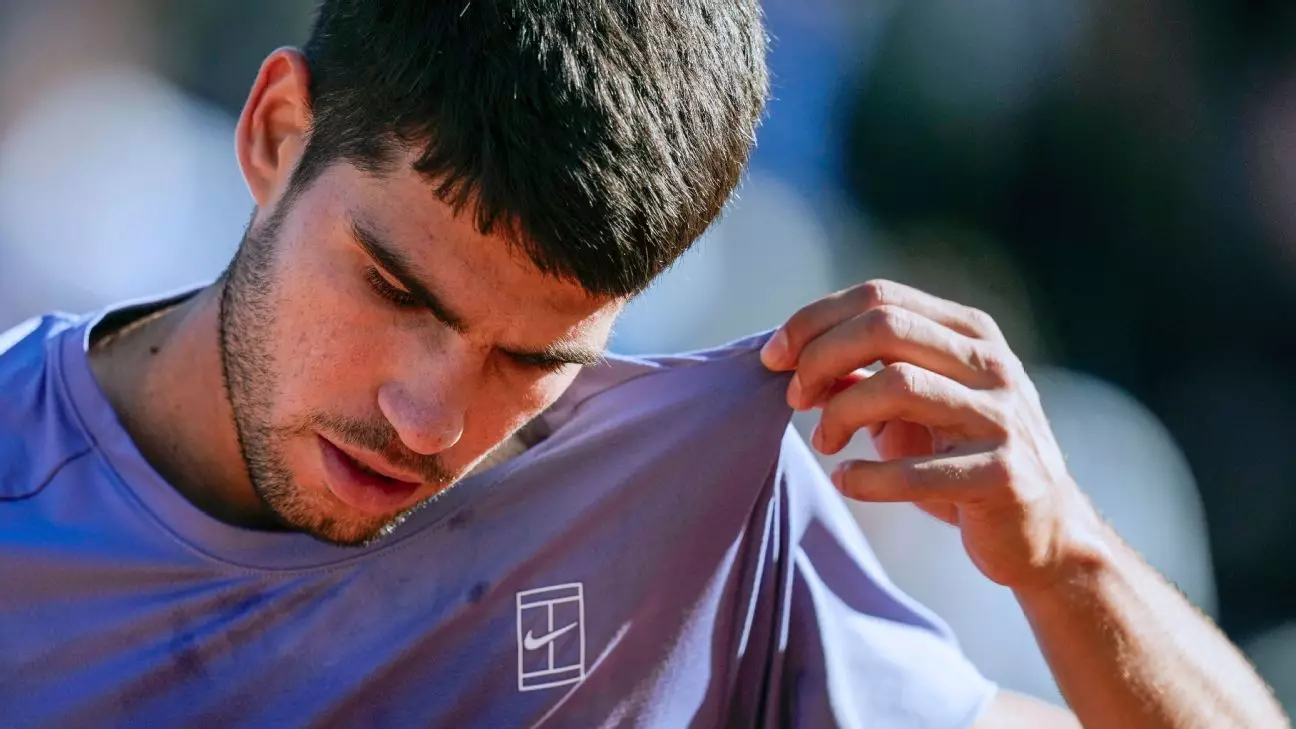In the world of professional sports, the drive to compete at the highest levels often comes at a physical cost, a reality that was starkly highlighted by Carlos Alcaraz’s recent decision to withdraw from the Madrid Open. The young Spanish tennis star, ranked third globally and beloved by home fans, has found himself contending with injuries that have become increasingly burdensome. Despite his formidable record and natural talent, the leg issues he faced were not mere inconveniences; they served as indicators of the demanding schedule that elite athletes must navigate.
For Alcaraz, the visual of him unable to take the court in a city where he has previously triumphed not only signals personal disappointment but also underscores the mental and physical strains that accompany immense public expectation. The injuries sustained at the Barcelona Open were clearly significant enough to warrant reevaluation of his readiness. Although he had appeared optimistic about feeling “fine,” the reality of professional play often diverges greatly from the psychological perspective of athletes who wish to compete regardless of setbacks.
A Modern Dilemma: Balancing Health and Ambition
This incident shines a light on a larger issue in the realm of modern athletics—how competitive pressures can lead to choices that jeopardize long-term health for short-term gain. Alcaraz’s comment about the relentless stream of matches with inadequate rest time resonates beyond tennis, echoing the sentiments of athletes across sports. The desire to maintain momentum often clashes with the responsibilities athletes have toward their physical well-being. In a landscape where injuries can rapidly derail careers, Alcaraz’s withdrawal could be seen not merely as a loss but as a savvy strategic move prioritizing his long-term prospects.
With the French Open on the horizon, Alcaraz’s focus understandably shifts to safeguarding his body while preparing for yet another demanding clay-court season. As the defending champion at Roland Garros, the stakes are inexorably high. World No. 2 and formidable competitor Alexander Zverev’s recent triumph speaks to the ever-changing dynamics of tennis rankings while adding pressure on Alcaraz. For him, navigation through injuries and competition readiness will not only define his upcoming season but also his legacy in the sport.
The Silver Lining: Preparing for Greater Challenges
As frustrating as it may be for fans accustomed to witnessing Alcaraz’s electrifying performances, this withdrawal could present an unforeseen opportunity for reflection and recovery. Being a four-time Grand Slam champion at just 22 years of age, Alcaraz has already established himself as a force to be reckoned with in tennis. However, taking a step back may allow him to build a more sustainable career trajectory rather than one rife with premature endings due to injury.
In moments like these, the mental fortitude of an athlete is tested. Alcaraz’s growth as a competitor will not only be measured by his title wins but also by how he manages adversity throughout his professional journey. Ensuring he is primed and prepared for significant competitions like the French Open can potentially elevate not just his game but also inspire the next generation of players to prioritize health as a critical component of athletic success.
Ultimately, while the Madrid Open may be a missed opportunity for Alcaraz, it also symbolizes a broader lesson about the balance that must be struck between ambition and wellness. As he paves the way forward, all eyes will be waiting to see the resilience that has defined his burgeoning career.

